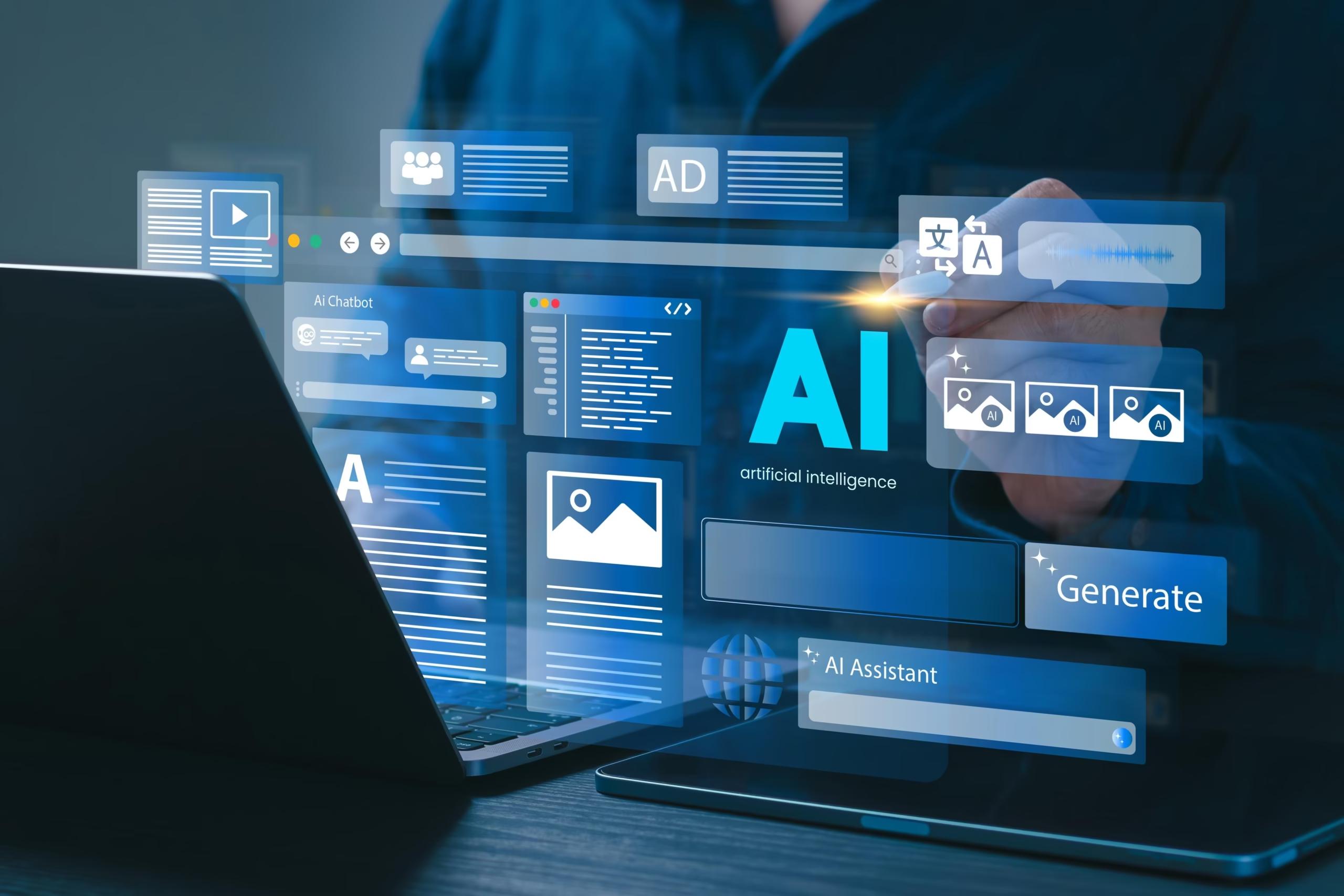As we head toward 2025, artificial intelligence (AI) continues to transform the way businesses operate. What began as a technical experiment has now become a critical part of strategic planning for global businesses. Companies across industries are using AI-driven strategies to improve customer experience, streamline processes, and discover new ways to make money. This change is not a one-day phenomenon, but a critical part of how businesses compete and innovate ideas in today’s digital world.
How AI Can Become a Valuable Business Asset
In 2025, AI will not just be seen as a way to automate tasks or process data, but as a strategic asset that helps businesses grow. Artificial intelligence (AI) has become a critical part of key initiatives for many businesses, helping them make decisions, run their businesses more efficiently, and come up with new ideas. Advances in machine learning, natural language processing, and data analytics are making AI more accessible, as it allows businesses to extract more information from large data sets and make smarter decisions.
Businesses are gaining an edge over their competitors because AI can provide insights into customer behavior patterns, predict market trends, and improve supply chains. As a result, leaders and board members are more likely to prioritize AI investments and form AI teams whose sole purpose is to align technology with business goals.
Using AI to Improve Customer Experience
One of the most significant changes AI will bring to business in 2025 is the way businesses interact with their customers. Today, many customer interactions are handled by AI-powered bots and virtual assistants. They respond quickly, accurately, and personally, 24/7. These systems can understand complex issues and make specific recommendations, increasing customer satisfaction and loyalty.
Using AI-driven customer data, businesses can also predict customer needs. This allows them to develop personalized marketing campaigns, product recommendations, and service plans for each customer. Companies can use AI insights to make the customer journey more engaging and useful, increasing sales and customer engagement.
Using AI to improve operational automation: As companies continue to focus on improving efficiency and reducing costs, AI plays a critical role in this. AI-driven automation is changing the way work gets done in many industries, including manufacturing, human resources, banking, and supply chain management. Intelligent automation tools are faster and more accurate than traditional methods for processing invoices, paying salaries, tracking inventory, and predicting maintenance.
Robots and computer vision systems powered by artificial intelligence are improving quality control and reducing downtime. AI models can predict changes in demand, improve shipments, and detect potential risks before they impact operations, making the supply chain more agile. Companies can use this operational data to reduce waste, save costs, and get products to market faster.
Promote new ideas and business models
AI can also stimulate new ideas and give companies the opportunity to try out new products, services and ways of doing business. With the help of AI, companies can gain better insight into market gaps, customer feedback and the actions of competitors. This intelligence allows us to quickly prototype and test ideas, allowing companies to quickly respond to changes in the market.
New services are now emerging that use AI, such as personal health insurance, smart financial advice and predictive maintenance contracts. AI is also a major reason why Data-as-a-Service and AI-as-a-Service models are so popular. In these business models, companies sell their AI skills to partners and customers to generate revenue. These new ideas create new ways to make money and reach more people in the market.
How to avoid the problems of applying artificial intelligence
While the benefits of AI are clear, turning business plans into reality will not be easy in 2025. The quality and quantity of data will remain very important issues. Without clean, diverse and sufficient data, AI models cannot
How people work. While some jobs are changing or disappearing, new jobs are emerging. These jobs focus on managing AI, analyzing data, and human-AI interactions. Companies are putting a lot of effort into reskilling programs to prepare their employees for the changing business world.
Collaborative AI systems are increasingly being used to empower employees by providing real-time insights, eliminating repetitive tasks, and driving innovation. This human-AI relationship frees up employees to focus on strategic, social, and problem-solving tasks that computers can’t, leading to greater job satisfaction and productivity.
Prepare for an AI-driven future
To thrive in the AI-driven business world of 2025, companies need to be forward-thinking. The first step is to ensure your AI plan is clear and aligned with your overall business goals. Leaders need to create an environment where new ideas, flexibility, and learning are always encouraged.
To gain access to cutting-edge solutions and experts, it’s important to invest in AI talent and build relationships with technology companies. Additionally, companies should focus on creating a scalable AI infrastructure and smoothly integrating AI tools across departments.
Continuous evaluation and improvement will ensure that AI models remain accurate and useful. To stay compliant and gain a competitive edge, companies must also stay up-to-date on emerging AI trends and regulatory changes.
In Summary
By 2025, AI business strategies will fundamentally transform businesses: improving customer experience, increasing process efficiency, driving innovation, and changing the way people work. Despite the challenges, companies that embrace AI and use it intelligently can achieve unprecedented growth and efficiency. Despite all the changes, AI will remain an essential part of business growth for many years to come.




